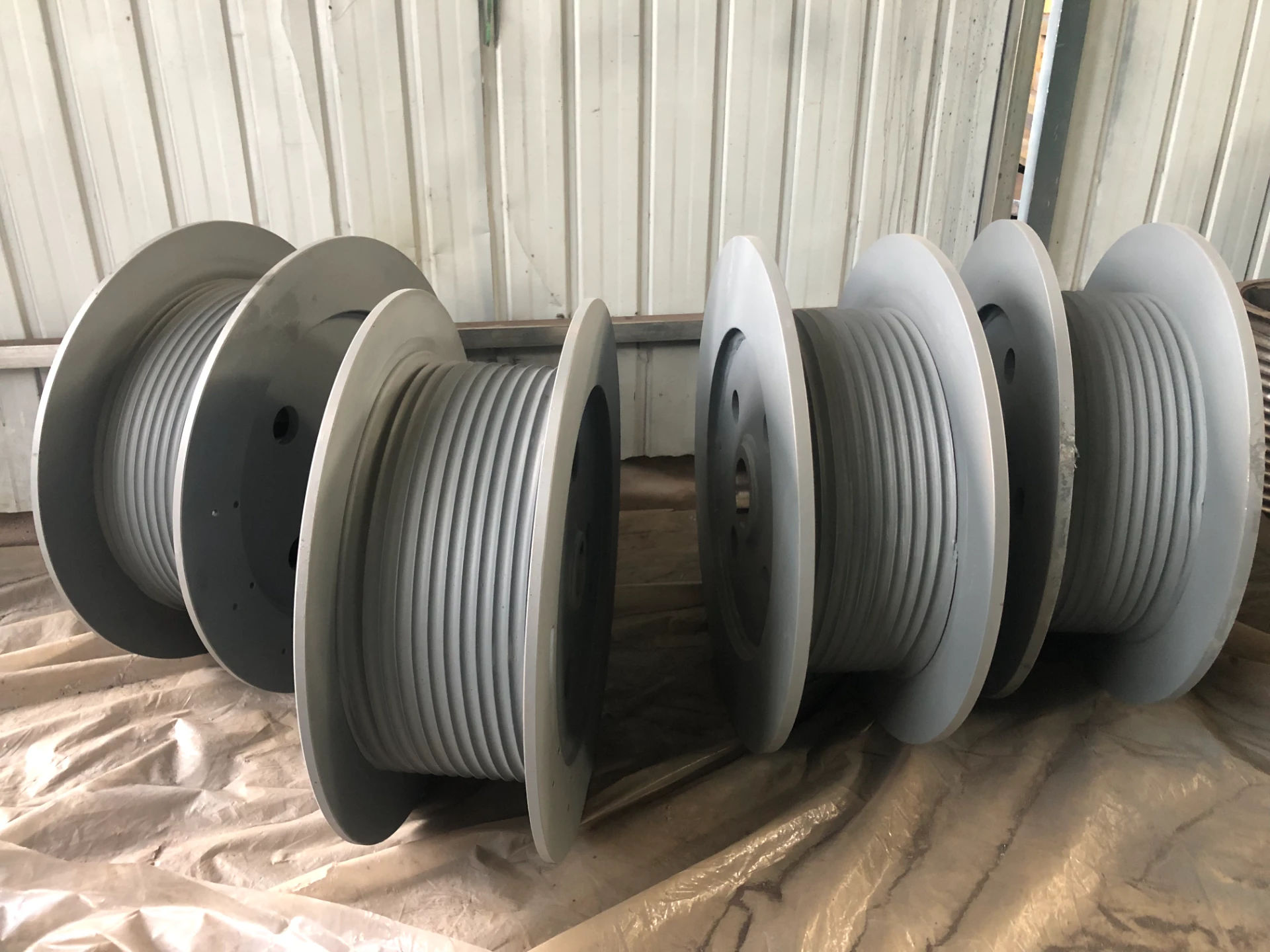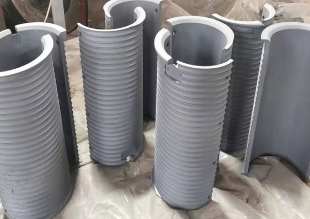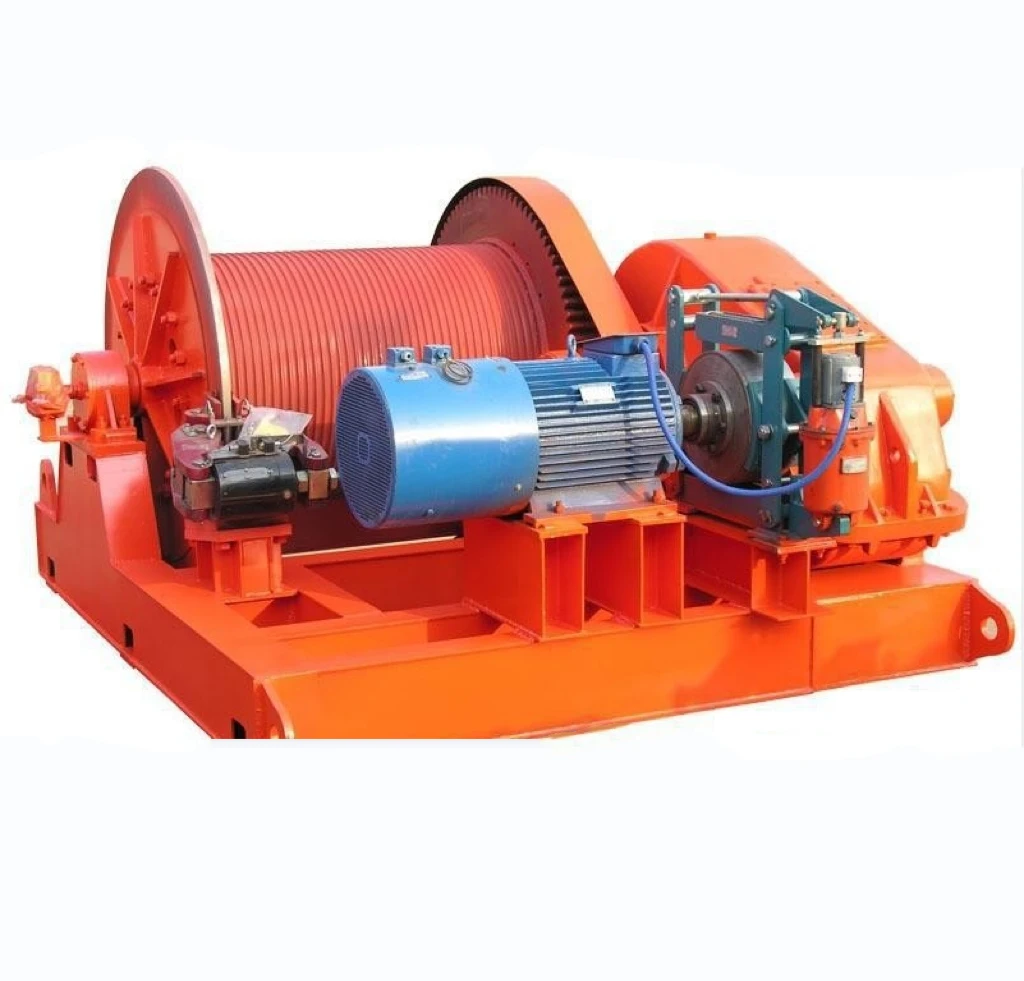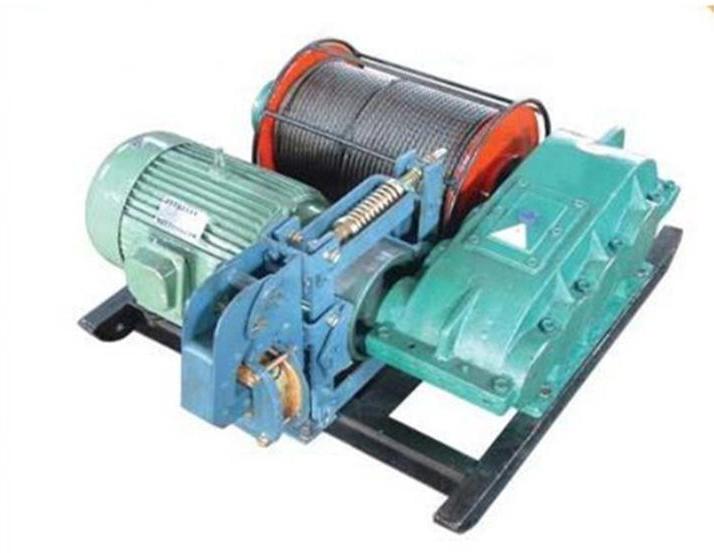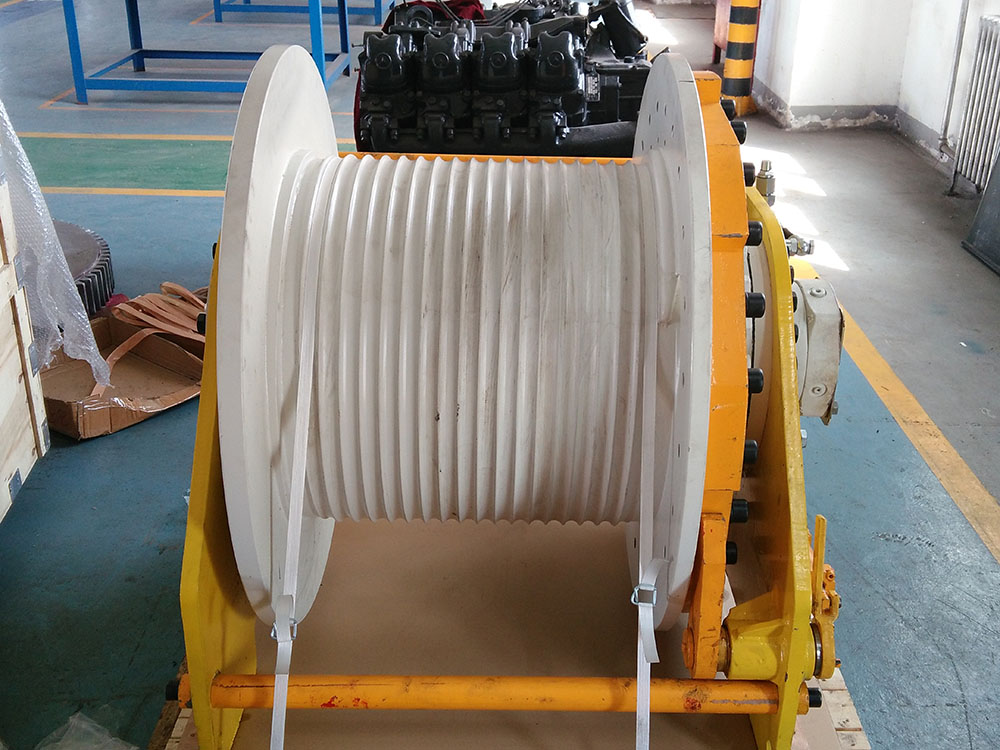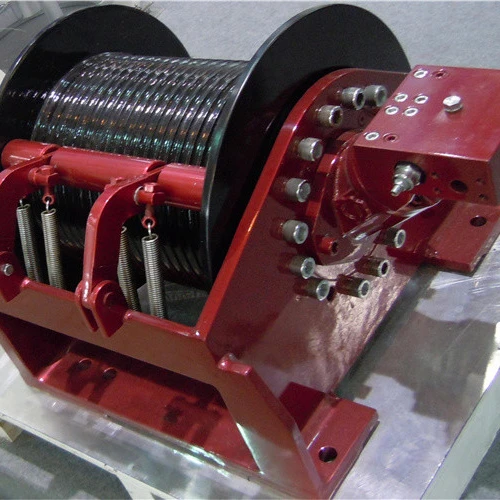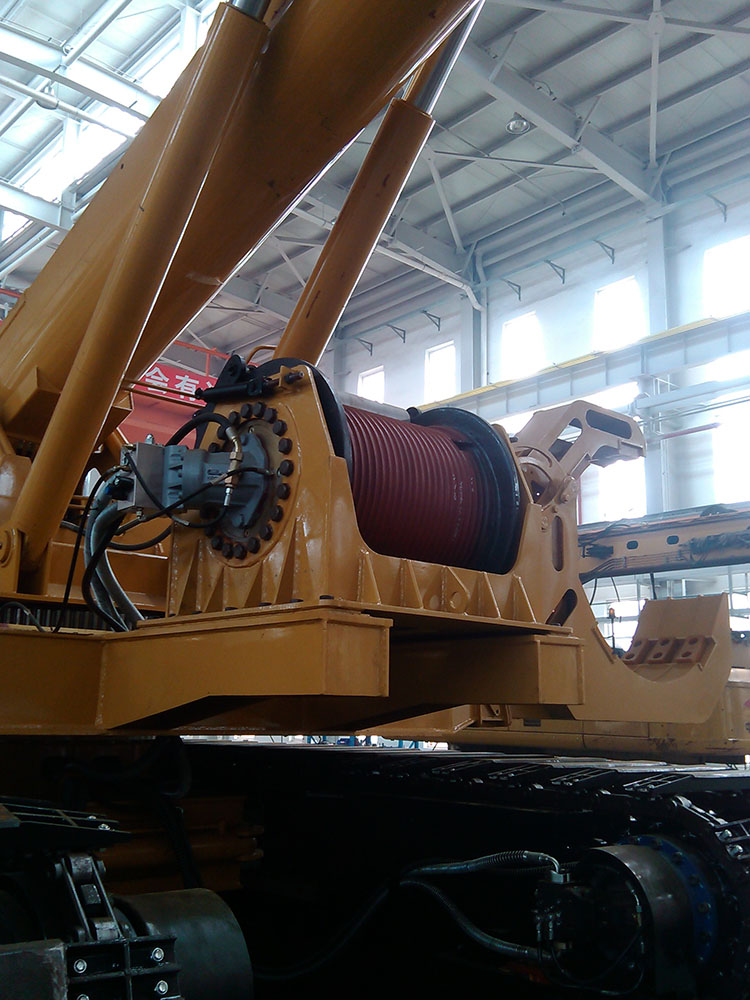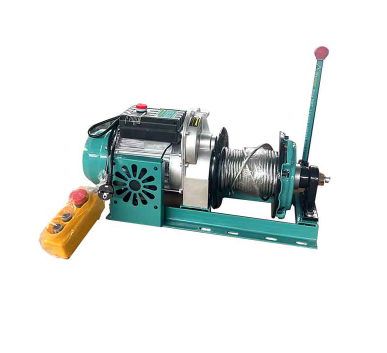Double Drum Hydraulic Winch – Durable, Efficient Load Handling Solutions
Understanding the Double Drum Hydraulic Winch: Why It Matters Worldwide
If you've ever seen massive shipyards, oil rigs, or construction sites, chances are you've caught a glimpse of the double drum hydraulic winch at work. But beyond the mechanical muscle, this piece of equipment plays a pivotal role in shaping industries globally—from maritime to mining, disaster relief to remote infrastructure projects. It’s not simply about pulling heavy loads; it’s about efficiency, safety, and sustainability in environments where precision and reliability can make all the difference.
In fact, global demand for hydraulic equipment is expected to grow by over 5% annually (according to ISO reports on industrial hydraulics), largely driven by sectors needing robust load handling solutions. Understanding the double drum hydraulic winch isn’t just for engineers—it’s crucial for anyone involved in logistics, humanitarian operations, or industrial innovation.
The Global Pulse: Why Double Drum Hydraulic Winches Are More Relevant Than Ever
Check this out: worldwide infrastructure spend is projected to hit nearly $6 trillion by 2030 (World Bank, 2023). Heavy machinery like double drum hydraulic winches stand at the heart of this boom. Whether it's supporting the construction of offshore wind farms in Europe or powering resource extraction in Africa, these winches offer unmatched power and control.
Yet, challenges abound. In disaster zones, for example, rapid deployment of winches can mean the difference between timely relief and prolonged suffering. Hydraulic systems offer smooth, controllable force unlike their electric or manual rivals, making them essential for sensitive, complex operations.
What Exactly Is a Double Drum Hydraulic Winch?
Put simply, a double drum hydraulic winch uses two spools (or drums) driven by hydraulic power to wind or unwind ropes or cables. You get two winch drums on a single frame, which allows for simultaneous or independent operations—pretty nifty when you want versatility in confined spaces or on dynamic sites.
This equipment is more than just heavy lifting; it underpins numerous modern industrial and humanitarian tasks where precision, power, and redundancy are safety musts. For instance, by having two drums, operators can handle multiple loads or provide fallback options without swapping out gear—imagine this value in complex marine towing or emergency evacuation setups.
Key Elements That Make Double Drum Hydraulic Winches Tick
Durability: Built for the Harshest Environments
These winches boast materials and designs to handle saltwater corrosion, abrasive dust, and frigid temperatures. It’s why many are constructed with galvanized steel drums and high-grade hydraulic seals. They just won’t quit when you need them most.
Power & Precision Control
The hydraulic drive offers smooth, steady torque that's easy to modulate—crucial for delicate or heavy load handling alike. Operators can adjust speed and tension in real-time, giving an edge over mechanical or electric winches that might stumble under fluctuating stresses.
Scalability & Customization
Whether you want a model that handles a few tons or one designed for ultra-heavy duty, many manufacturers tailor specs like drum diameter, cable length, and hydraulic pump type. It’s flexible enough for everything from light equipment towing to hauling entire bridge sections.
Safety Features
Engineers often integrate automatic braking systems, overload sensors, and fail-safe clutches, ensuring that mishaps are minimized. Plus, double drum designs inherently provide operational redundancy—you’re not left high and dry if one drum fails mid-task.
Cost Efficiency Over Time
Sure, initial investment can be steep, but hydraulic winches often outlast and outperform alternatives in maintenance and longevity—saving money and headaches in the long haul.
Mini takeaway: Double drum hydraulic winches combine strength, control, and resilience into one package that meets the demands of today's rugged industries.
Real-World Uses: How These Winches Serve the Globe
Their versatility means double drum hydraulic winches crop up everywhere—and not just in obvious heavy industries. Marine vessels hauling cargo rely on them, yes, but you'll also find them stabilizing cranes in Southeast Asia, aiding cable deployment in Arctic research stations, and even assisting NGOs during the unpredictable aftermath of natural disasters.
For example, during the 2022 floods in Bangladesh, relief teams used portable hydraulic winch systems to clear debris and stabilize dam infrastructure rapidly. Over in Australia, mining companies deploy them for hauling massive equipment parts across rough terrain.
Industries Benefiting from Double Drum Hydraulic Winch
- Maritime and Offshore Engineering
- Oil and Gas Extraction
- Construction and Infrastructure Development
- Disaster Relief and Humanitarian Missions
- Mining Operations
Product Specification Table
| Specification | Details |
|---|---|
| Winch Type | Double Drum Hydraulic |
| Maximum Load Capacity | 35,000 kg (approx.) |
| Drum Diameter | 650 mm |
| Line Pull Speed | 0 - 12 m/min |
| Hydraulic Motor Power | 45 HP |
| Cable Length per Drum | 200 m |
| Control Type | Remote & Local |
Comparing Leading Vendors of Double Drum Hydraulic Winch Systems
| Vendor | Load Capacity (kg) | Customization Options | Warranty | Pricing Estimate |
|---|---|---|---|---|
| HydroLift Solutions | 30,000 kg | High (custom drum sizes, controls) | 3 years | $$$ |
| MarineWinch Co. | 40,000 kg | Medium (limited drum options) | 5 years | $$$$ |
| ToughGear Systems | 35,000 kg | High (custom motors and controls) | 4 years | $$ |
Advantages of Using a Double Drum Hydraulic Winch
In real terms, these winches bring capital value beyond raw horsepower. Their design inherently boosts workplace safety—a winch failure or sudden jerky movement can cause catastrophic injuries, and hydraulic control drastically lowers those risks.
There’s also the environmental angle. Hydraulic systems often run more efficiently and are more rugged, reducing waste from frequent repairs or replacements. Also, many manufacturers now integrate eco-friendly hydraulic oils and energy recovery systems, pushing the industry toward green certifications.
On the human side, operators often feel more confident with intuitive control systems that reduce fatigue and stress. That trust is vital when moving heavy equipment in sensitive or time-critical scenarios.
Explore double drum hydraulic winch options here to see how these benefits align with your projects!
Looking Ahead: Future Trends in Hydraulic Winch Technology
As automation and digital monitoring systems mature, we’re seeing smart hydraulic winches that include predictive maintenance sensors and remote diagnostics. This means less downtime and more efficient fleet management.
Materials science is playing a part too—lighter composites and advanced alloys are reducing overall weight without compromising strength. And integration with renewable energy sources, like solar-powered hydraulic pumps, is edging winch systems toward sustainability.
Overcoming Challenges in Double Drum Hydraulic Winch Deployment
No tool is perfect, of course. Challenges often involve integrating these winches in tight or mobile setups, especially where hydraulic infrastructure might not exist. But hybrid designs using portable power units, or user-friendly modular rigs, are gaining traction.
In addition, operator training remains crucial. Most accidents or inefficiencies tie back to misuse rather than equipment fault, so investing in hands-on courses or virtual simulators can pay big dividends.
FAQ: Frequently Asked Questions About Double Drum Hydraulic Winch
Q1: How does a double drum hydraulic winch differ from single drum models?
A1: Double drum winches effectively double your handling options by providing two independent spools. This means you can operate two cables simultaneously or switch between tasks faster, improving operational efficiency and offering redundancy—a key safety benefit.
Q2: Can double drum hydraulic winches be customized for specialized projects?
A2: Absolutely. Most vendors offer customization in terms of load capacity, drum size, cable length, and control systems to suit specific industrial demands, such as offshore rigging or disaster relief efforts.
Q3: What maintenance is required to keep these winches operational?
A3: Regular checks of hydraulic fluid levels, inspection of seals, and drum cable integrity are essential. Leveraging digital monitoring tools can simplify maintenance scheduling and preempt failures.
Q4: Are these winches suitable for use in extreme weather conditions?
A4: Yes, most double drum hydraulic winches are rated for harsh environments, including saltwater exposure and subzero temperatures, thanks to corrosion-resistant materials and robust seals.
Q5: How do I select the right double drum hydraulic winch for my project?
A5: Consider your maximum load requirements, available hydraulic infrastructure, operational environment, and the need for features like remote control or automated braking. Consulting with vendors or experts can clarify your best fit.
In Closing: Why Investing in a Double Drum Hydraulic Winch Makes Sense
When you think about it, the double drum hydraulic winch embodies more than muscle—it’s about precision, trust, and adaptability across industries worldwide. Whether powering critical infrastructure or saving lives in disaster zones, these winches deliver value that grows over time.
Want to explore your options? Visit our website for a detailed dive into products that can elevate your operations.
References & Resources
Previous
This is the first article-
Hydraulic Drum Winches: Powering Heavy Lifting with Precision and DurabilityNewsNov.24,2025
-
Hydraulic Driven Winch – Reliable Heavy Lifting Solutions for Industry & ReliefNewsNov.24,2025
-
Hydraulic Crane Winch – Powerful & Precise Heavy Lifting Solutions | LBS WinchNewsNov.23,2025
-
Electric Over Hydraulic Winch: Efficient, Durable Lifting Solutions for Modern IndustryNewsNov.23,2025
-
Hydraulic Logging Winch Guide | Global Applications & InnovationsNewsNov.22,2025


